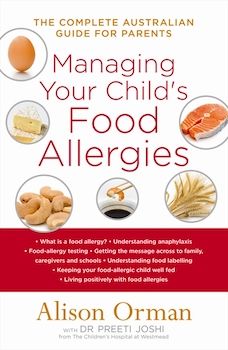
Food allergies are becoming increasingly prevalent in today’s society. Individuals with food allergies experience adverse reactions when consuming certain foods. It is essential to understand and manage food allergies to ensure the health and well-being of those affected.
What are Food Allergies?
A food allergy is an immune system response to a specific food protein. When individuals with food allergies consume the allergenic food, their immune system mistakenly identifies the protein as an invader, triggering allergic reactions. These reactions can range from mild symptoms like hives and itching to severe, life-threatening symptoms such as anaphylaxis.
Common Food Allergens
There are several common food allergens that account for the majority of food allergies. These include:
Peanuts
Tree nuts (e.g., almonds, walnuts)
Milk
Eggs
Wheat
Soy
Fish
Shellfish
Symptoms of Food Allergies
The symptoms experienced by individuals with food allergies can vary in severity. Common symptoms include:
Hives
Itching or tingling in the mouth
Skin rash
Swelling of the lips, face, tongue, or throat
Digestive problems (e.g., nausea, vomiting, diarrhea)
Difficulty breathing or shortness of breath
Chest pain or tightness
Diagnosis and Management
Accurate diagnosis of food allergies is crucial for effective management. This typically involves a combination of medical history evaluation, physical examinations, and allergy testing, such as skin prick tests or blood tests.
Once diagnosed, managing food allergies involves strict avoidance of the allergenic food(s). This requires careful reading of food labels and being aware of potential cross-contamination risks. Many individuals with food allergies carry an epinephrine auto-injector (e.g., EpiPen) to be used in case of accidental exposure and severe allergic reactions.
Living with Food Allergies
Living with food allergies can significantly impact an individual’s daily life. It is essential to create a safe environment, especially for children, by educating caregivers, teachers, and friends about the specific allergens and necessary precautions.
Support groups and online communities can also provide invaluable resources and emotional support to those with food allergies and their families. Sharing experiences, recipes, and tips can help individuals navigate the challenges of living with food allergies.
Emerging Treatments and Research
Researchers are continuously working to develop innovative treatments and therapies for food allergies. Recent advancements include oral immunotherapy, where individuals gradually consume small amounts of the allergenic food to desensitize their immune system.
While promising, these treatments are still in the experimental stage and should only be conducted under the supervision of medical professionals.
Conclusion
Understanding and managing food allergies is crucial to ensure the overall well-being of individuals living with this condition. By being knowledgeable about common allergens, recognizing symptoms, and embracing safe practices, we can create a supportive environment that enables those with food allergies to lead fulfilling lives.

